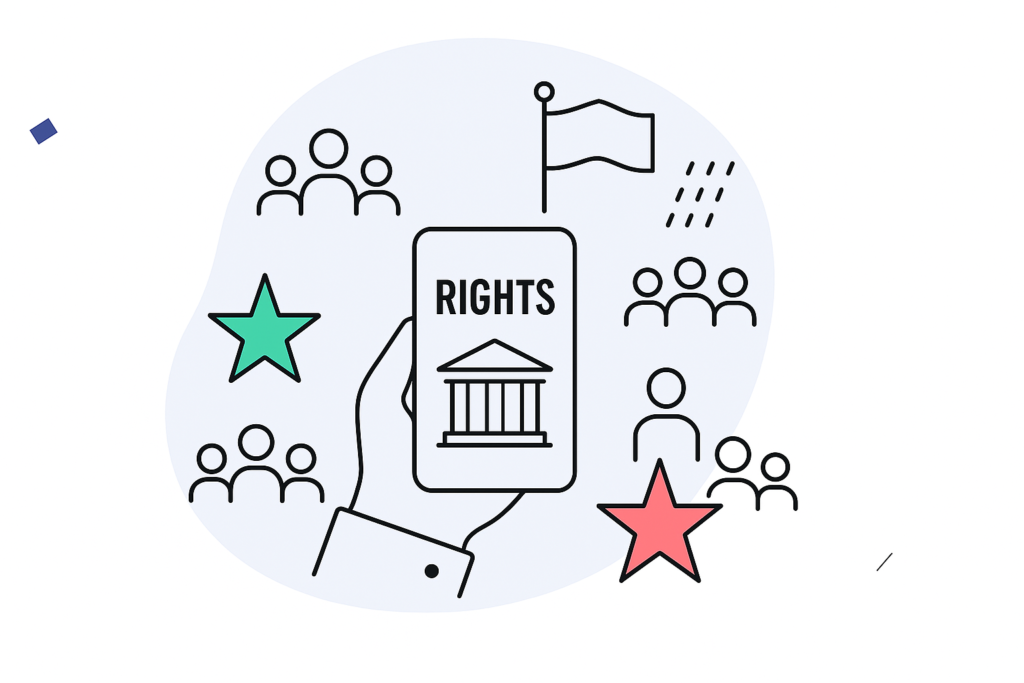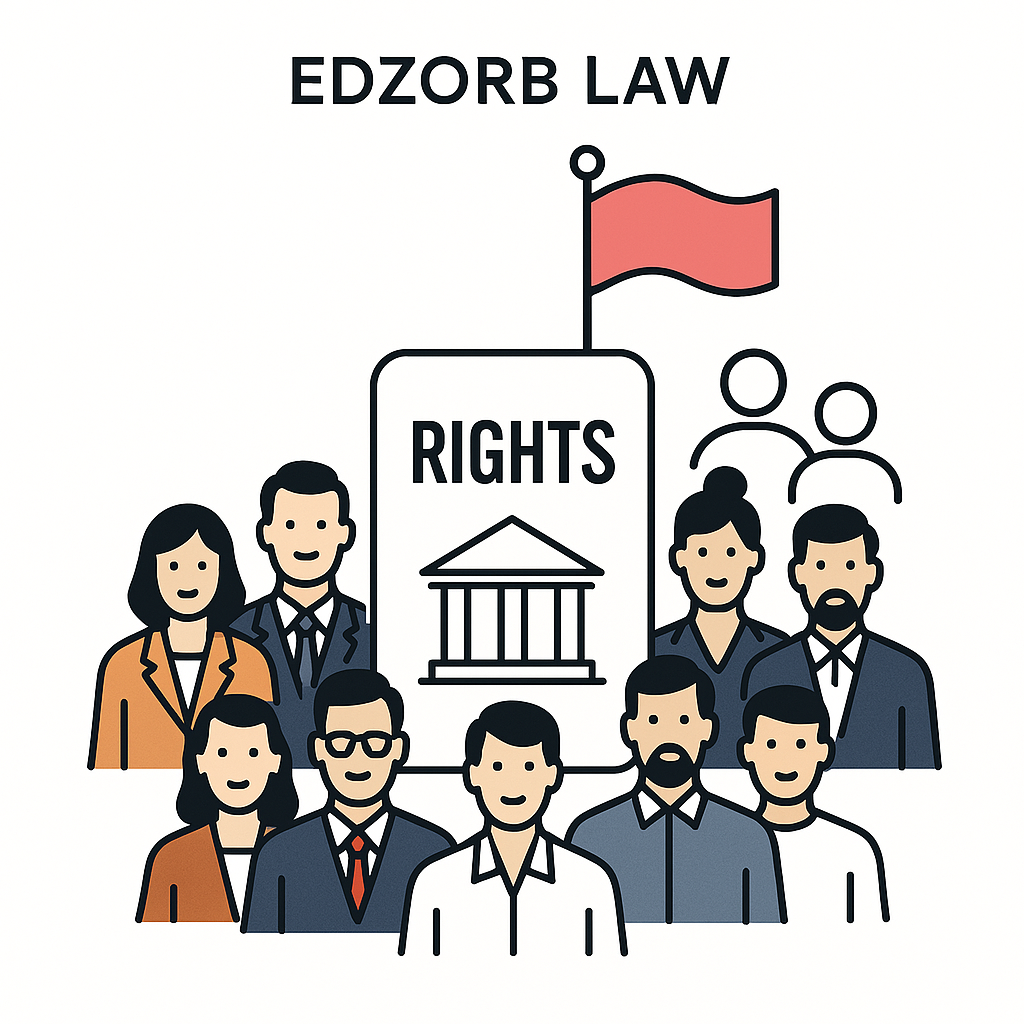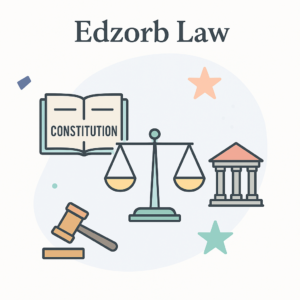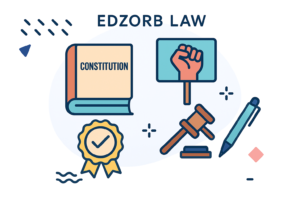In any democratic nation, maintaining a balance between rights and duties is crucial for preserving order, fairness, and progress. A democracy thrives not just on the freedom it offers but also on the shared responsibilities it demands from its citizens. Without this balance, the very foundation of a democratic society can weaken.
The Indian Constitution masterfully captures this delicate equilibrium by enshrining Fundamental Rights and Fundamental Duties. While Fundamental Rights empower individuals to live with dignity, freedom, and equality, Fundamental Duties serve as moral obligations, guiding citizens to uphold the nation’s integrity and values. Together, they create a system where empowerment and responsibility coexist.
Rights and duties are two sides of the same coin, shaping the essence of modern Indian citizenship. In this post, we will delve deeper into the significance of these constitutional provisions, examining how they foster responsible citizenship and contribute to building a strong, vibrant democracy for the future.
Understanding Fundamental Rights and Duties
Fundamental Rights and Duties are the pillars of a vibrant democracy. Rights empower individuals, ensuring they can live freely, equally, and with dignity. They form the foundation for personal liberty, expression, and justice in society.
At the same time, duties remind citizens that freedom comes with responsibility. These constitutional provisions ensure that individuals not only enjoy their rights but also contribute actively to the nation’s well-being and progress.
Fundamental Rights and Duties: The Cornerstones of the Indian Constitution

The Indian Constitution is built upon three vital pillars:
- Fundamental Rights
- Directive Principles
- Fundamental Duties
These elements work cohesively to ensure an inclusive and equitable society.
Fundamental Rights: Shielding Individual Liberties
Part III of the Constitution enshrines six key categories:
Right to Equality (Articles 14–18)
- Equality before the law
- Abolition of untouchability and titles
Right to Freedom (Articles 19–22)
- Freedom of speech, expression, movement, profession, etc.
- Right to life and personal liberty (Article 21)
- Right to education (Article 21A)
Right against Exploitation (Articles 23–24)
- Prohibition of human trafficking and child labor
Right to Freedom of Religion (Articles 25–28)
- Article 25: Guarantees all individuals the freedom of conscience and the right to freely profess, practice, and propagate their religion, subject to public order, morality, and health.
- Article 26: Grants every religious denomination the right to manage its own affairs in matters of religion, establish institutions, and own and acquire property.
Cultural and Educational Rights (Articles 29–30)
- Article 29: Protects the interests of minorities by allowing any section of citizens with a distinct language, script, or culture to conserve it.
- Article 29(2): Prohibits discrimination based on religion, race, caste, language, or any of them for admission into educational institutions maintained by the State or receiving aid from State funds.
Right to Constitutional Remedies (Article 32)
- Article 32: Empowers individuals to directly approach the Supreme Court for the enforcement of Fundamental Rights.
- Dr. B.R. Ambedkar called Article 32 the “heart and soul of the Constitution” because it ensures the protection of all other rights.
🙌 Fundamental Duties: Fostering Responsible Citizenship
Added by the 42nd Constitutional Amendment (1976) under Article 51A, these duties emphasize:
- Respect for the Constitution and National Symbols
- Promotion of harmony and the spirit of brotherhood
- Environmental protection
- Scientific temper and inquiry
- Commitment to excellence in all spheres
Bonus Duty (86th Amendment, 2002):
📚 To provide education to children aged 6–14 years
🔄 Rights vs. Duties: A Symbiotic Relationship
- Rights are meaningful only when exercised with a sense of duty.
- Duties guide citizens toward using rights for collective welfare.
- Example: Freedom of speech must not incite hatred; it must foster dialogue.
💡 Why Fundamental Duties Matter Today

Promote Civic Engagement
Encouraging participation in nation-building and respect for democratic processes.
Champion Environmental Sustainability
Duties emphasize ecological balance; crucial in combating climate change.
Strengthen Legal Frameworks
Judicial bodies use duties to interpret laws, as seen in:
- M.C. Mehta v. Union of India (1983)
- AIIMS Student Union v. AIIMS (2001)
Judiciary’s Role in Balancing Rights and Duties
While fundamental duties aren’t enforceable by law, courts often invoke them to:
- Interpret statutes aligned with national interest
- Justify policy decisions
- Encourage ethical governance
Conclusion: The Balance that Builds a Nation
Fundamental Rights and Duties form the ethical and legal compass guiding Indian citizenship. They safeguard individual freedom, empowering people to live with dignity and equality. At the same time, they ensure that citizens remain mindful of their responsibilities toward society and the nation.
As India continues to evolve, maintaining this balance between rights and duties will be crucial. It will play a vital role in strengthening democracy, upholding justice, and fostering unity among the diverse population of the country.
Explore More on Constitution & Civic Awareness
- Read: Directive Principles of State Policy – Social Justice in Action
- Watch: Rights vs Duties Explained with Real-Life Examples
If you’re preparing for judicial exams and want in-depth guidance on constitutional law, fundamental rights, and much more, Edzorb is your one-stop platform for all your preparation needs.
With comprehensive study materials, practice tests, and expert insights, Edzorb ensures you’re equipped with everything needed to succeed.

 Podcast
Podcast








 Features
Features






